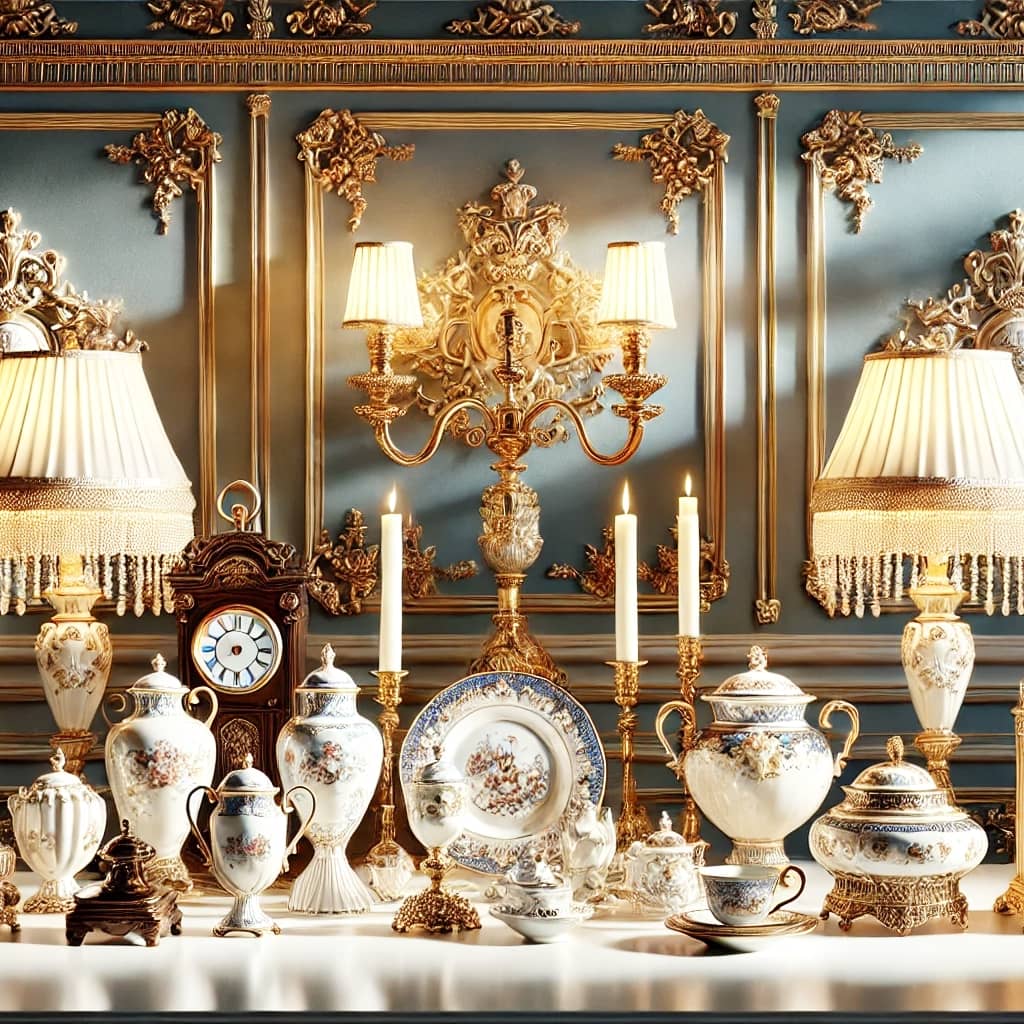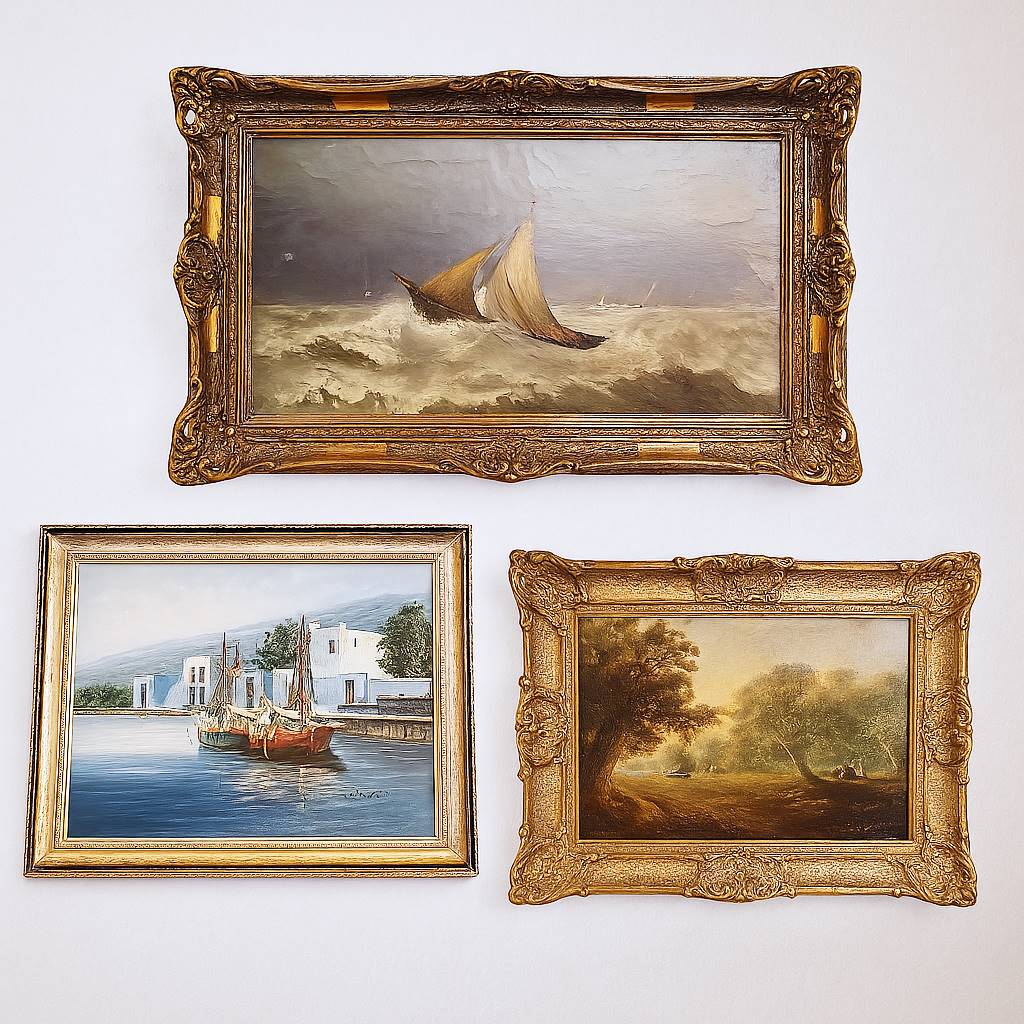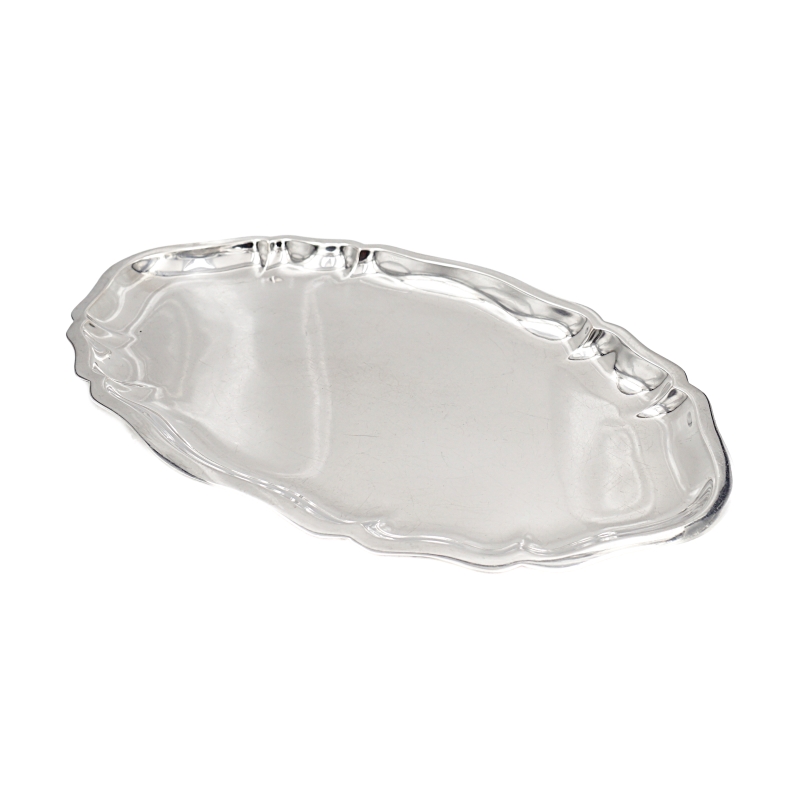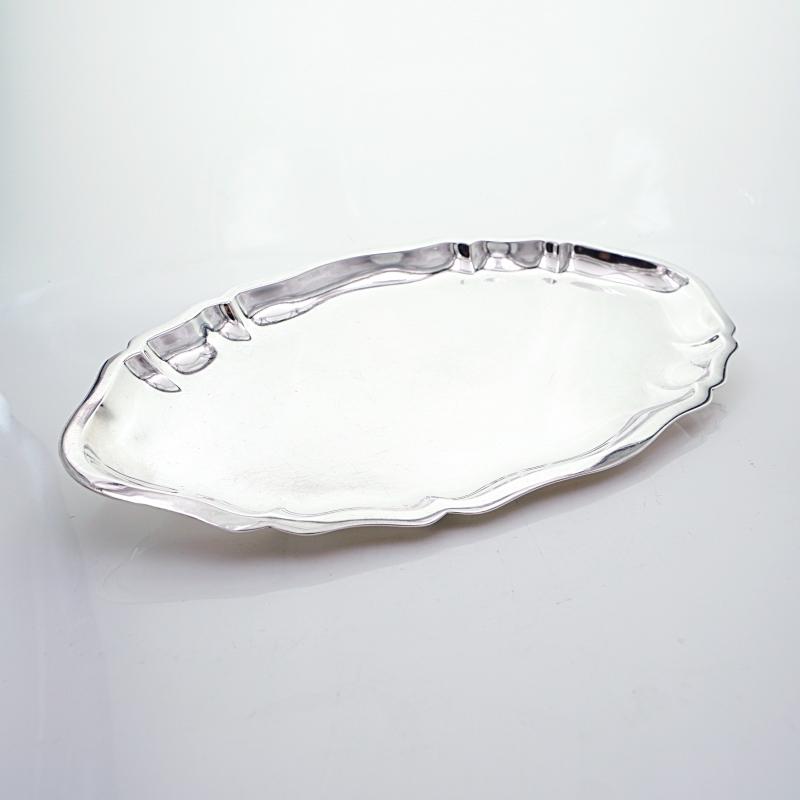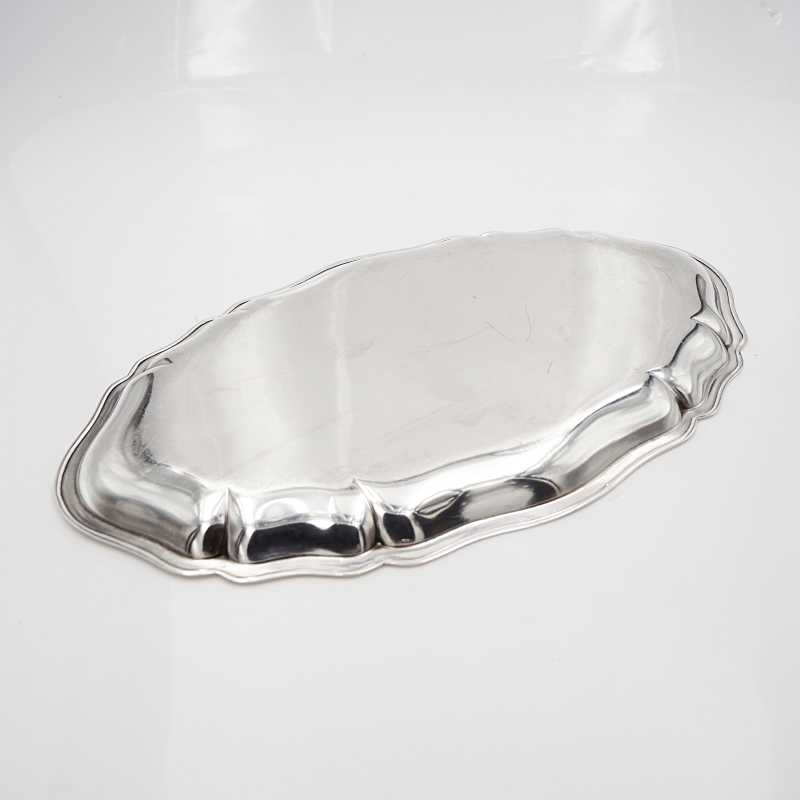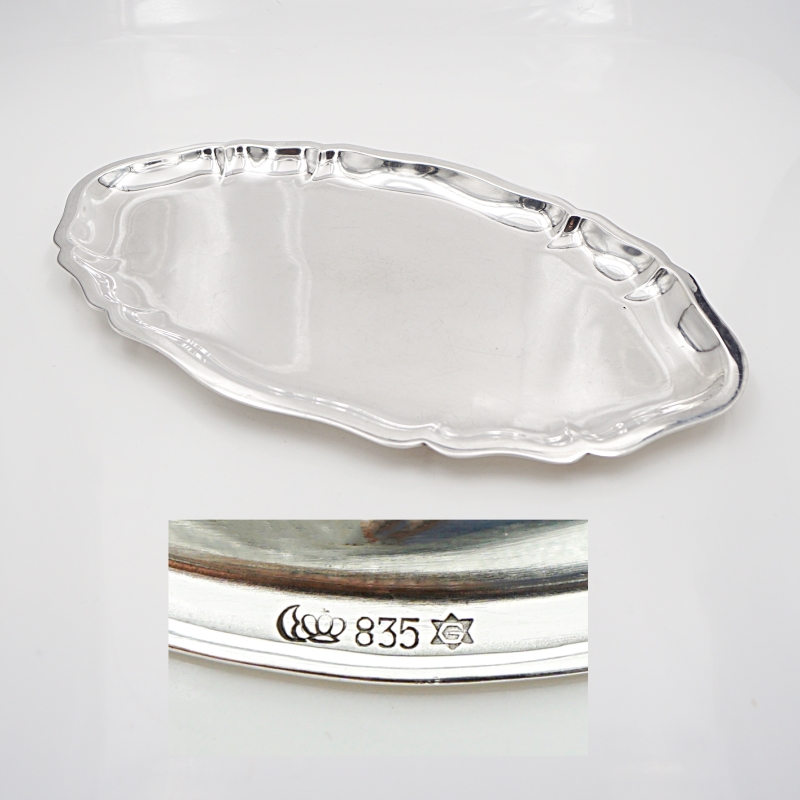Silver tray Chippendale – Jakob Grimminger, Schwäbisch Gmünd
Beautiful oval tray with slightly raised edge. Chippendale style tray is appropriately hallmarked on the underside with maker’s mark, fineness mark and warranty mark.

Immediately ready for shipment
Delivery time 1 – 3 working days

Free Shipping
Within Germany from €99 order value

One month right of withdrawal
Valid for all products
| Designation | |
|---|---|
| Manufacturer | |
| Region | |
| Time | |
| Hallmark | – Master sign G in star |
| Material | |
| Maße | 25,6 cm x 15,3 cm |
| Weight | 157.8 gram |
| State | C+ |
Information about our condition assessment
A+
The item has no traces of use and is therefore in pristine condition.
This valuation is unusual for antiques and describes an exception rather than the rule.
A
This item has minimal signs of use, such as very fine surface scratches or minimally rubbed gilding.
B+
This item has very few signs of use, such as fine surface scratches, a little rubbed gilding, or a small blemish which is noticeable to a minor degree.
B
This item has few signs of use, such as normal surface scratches, age appropriate rubbed gilding, or a small blemish which is not distractingly noticeable.
C+
This item has normal signs of use, such as normal or deeper surface scratches, a noticeably rubbed gilding, or a blemish which is noticeable.
C
This item has obvious signs of use, such as deeper surface scratches, a heavily rubbed gilding, or a major blemish which is noticeable.
D
This item has very obvious signs of use, such as very deep scratches, heavy wear marks and or damage.
Restored
Is it a restored item? You can find out everything you need to know about restoration here
The gold and silversmith trade and Schwäbisch Gmünd are linked by a centuries-long tradition. The first goldsmith is mentioned in the documents as early as 1372, although in the 14th century the gold and silver craft had not yet spread beyond the Gmünd area. From the middle of the 17th century, it continuously developed into the determining trade of the then imperial city: at the end of the 16th century, there were already ten master goldsmiths working in Schwäbisch Gmünd, in 1695 there were 94, and in 1739 there were even 250 gold and silversmiths. Source: Wikipedia

